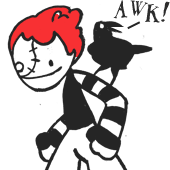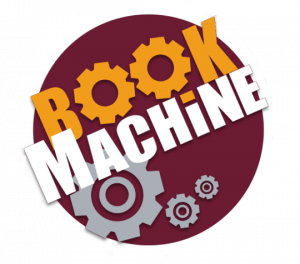Maybe I’ve been watching too many old Midsomer Murders episodes, but recently I’ve been thinking about blackmail. Specifically, how one might blackmail different people using their fears, their vices and the public image they desperately wish to maintain.
Politicians rely on an image of propriety, so anything to do with sex, drugs or corruption would do. Journalists rely on the accuracy of their work, so you’d have a strong hand threatening to reveal fabrication or bribery. But what about artists, for whom facts can be used elastically, and whose sex scandals (excepting the extreme, moral-event-horizon kinds) don’t so much end their careers as fuel interest in their next work?
It seems all you have to do to make an artist nervous is to let them know you’re onto them. You know where they go during the day, who they’re talking to, why they can’t meet you for coffee. They have that most shameful of habits: a job.
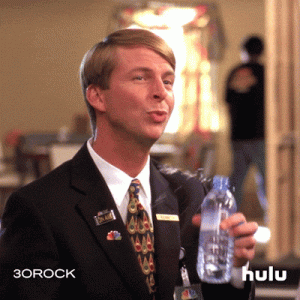
I’m not talking about academic jobs, where one might teach and monetise one’s art respectably and still be thought of as a creative. Nor am I thinking of jobs with an aura of coolness/niche interest/mystery (location scout, editor, columnist, model, taxidermist, whisky taster, artisan anything), of the kind that prompts strangers to respond “Oh wow – you must have some amazing stories”. We’re talking bread-and-butter office jobs, service-industry jobs, temp jobs, multiple jobs – the answer to how you pay the rent.
I’ve seen the same plea come up a few times on Twitter. A head pops up above the parapet and begs artists to confess their day jobs and waft away some of their crafted mystique, in order to share the reality of living and working in the arts. So few creators want to dilute their image by admitting their art is not enough to live on, but for most, it’s the truth.
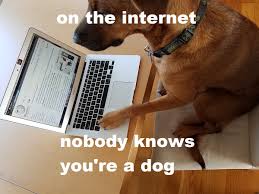
I mean, obviously not me. I’m a full-time bona fide artist. I wake up, I write, I think about similes, litotes, enjambment. On busy days I answer emails about public appearances and book blurb requests, and respond graciously to fans. When I’m not writing, I’m researching, by which I mean reading, people-watching, or just absorbing the world, passing it through my creative checkpoint. In my free time, I meet other artists so we can share our praxis with each other and nurture each other’s visions. And I’m here to tell you that all you need to do to get people to shower you with money to create and occasional tweet about creating and just – y’know – have time to really think, is to dream big, focus and follow your bliss.
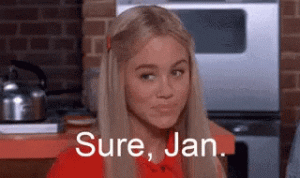
Yeah, no. I have a job. We all have jobs. I’ve had a job of sorts pretty consistently since the age of 15. I’m not trying to earn gritty-realism “down t’pit” points here – I like having a job (which is not to say all of my jobs have been good/happy experiences). My first gig beyond the odd spot of village babysitting was a Saturday job washing up in a pub kitchen c. 1999 for £2.60/hr. Since then I’ve worked as a shop assistant, chip-fryer, uni note-taker, factory temp (you’ve not lived till you’ve spent a summer measuring broccoli with calipers), campus tour guide, call-centre operative, cinema usher and funding researcher.
Having quit my last full-time role back in 2012, I spent a couple of years haphazardly starting to freelance as a copywriter and proofreader. Working from home, the isolation drove me mad and amplified fears that I would not succeed. Full-time work had left me burnt out and freelancing had not been a swift win, so what was left? What was I even good for?
After some trial and error I worked out I needed both flexibility and human contact. I worried at first that seeking regular work again meant I was giving up on freelancing, and I fretted about being perceived as a failure. As far as I was concerned, if I wasn’t making a solid living from a standing start in a creative field, I might as well vanish from the earth. After many, many job applications, I finally found part-time work in a university library, and with it, peace, happiness and relief.
My Clark Kent job not only keeps the wolf from the door, it gives me the variety, structure and social interaction I need to be happy and enjoy making weird art with less emphasis on its monetary value. Over the years, day jobs have also provided training which I’ve gone on to use in my freelance and art lives, from the MS Excel course that’s taken the pain out of my annual taxes to InDesign, Mental Health First Aid and time management tools.
The security of a part-time job has also given me breathing room to develop my writing and voiceover business with more confidence and energy, and to have off-days without despairing. Turns out that when you’re not paralysed with anxiety about making rent every month, or relentlessly berating yourself for unstructured days and wasted time, you feel more creatively inclined all round.
A few caveats: no day job should take so much out of you that you feel unable to do anything once you get home or sign off. Your job should not make you feel unhappy, insecure, unduly stressed, undervalued or trapped. Ideally it will be a role you can leave at the office or shop. It should pay you enough to justify the time it takes, and your colleagues should be good people. I also appreciate that some people are much more suited to solo working, and believe me, I envy that. I’m not one of them.
Through pretty ordinary roles I’ve met the most amazing range of people – close friends, role models, teachers and mentors – as well as challenging colleagues and cautionary tales. These interactions all feed back in, broadening the ways in which I process the world, the information I’ve tripped over in the process, the mistakes I make and learn from, and the art that results from all of these experiences.
I’ve been lucky and unlucky in work over the years, and I’ve made mistakes aplenty. Right now I feel tremendously lucky, as though the ground beneath my feet is finally stable. I hope you find the balance that works for you.
